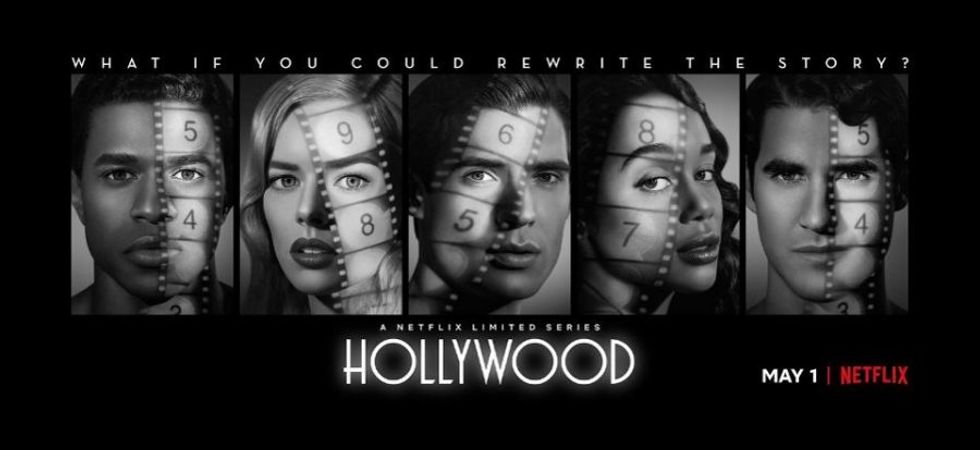Netflix's new original series entitled "Hollywood" sheds some new and (some known) light onto the underbelly of Hollywood entertainment. We follow handsome and ambitious Mid-Westerner Jack Costello as he embarks on a journey to becoming a movie star in post-War America. Archie Coleman, a black man with dreams of becoming a prominent screenwriter for "the pictures", is soon by his side and a plethora of other characters to follow, all of which struggling with the brick walls laid out in front of their Hollywood dreams. Donned the Golden Age, when stars such as Judy Garland, Vivien Leigh, and a soon-to-be Rock Hudson lit up the sunset strip, fresh meat like Jack and Archie struggle to have a fighting chance, but they aren't the ones fighting the most in the City of Angels.
The introduction to the show alone reveals Jack and the unlikely crew of creatives scaling the luminous Hollywood sign, giving each other a hand along the way to a shimmering sunrise (or maybe sunset). "Hollywood" features themes of equality (or lack thereof), casting couch antics, abusive agents, and the driving forces of fame, fortune, and fraternizing. Underneath this shimmering image and pantheon of polished persona's there lies an undercurrent which connects many of the characters as they cross paths and swords with one another, accomplishments and failures of both unknown actors, and even actors who have made it, studio heads, and even agents in the grand machine. The spotlight shines most brightly in moments upon highlighting the brutal facade of fat-cat producers and racial zeitgeist that put pressure on even the most groundbreaking Hollywood icons, such as Anna May Wong, who is widely considered Hollywood's first in Asian-American movie star. Moments where the show shines, are moments such as the portrayal of Wong's story with the film "Good Earth", in which German actress, Luise Rainer, won the part over Wong and ended up winning the Oscar for the portrayal of O-Lan. These real moments cement us into the reality that "Hollywood" portrays and makes us root for those characters.
Like Hollywood does, "Hollywood" goes ahead to embellishing details, creating drama, and glamming up the scenery. Alternate reality plays a role here, including much of the depiction of rising star Rock Hudson, exemplified in his first screen test. Some details concerning Rock are stretched for entertainment value, to the point where Rock seems to be a euphemism for the contents of the man's head, where someone might scratch their own head and think, "were looks really that important, even back then"? Overall the show does justice to greatly raise awareness of everything the culture of Hollywood is now trying to admonish. We are able to see and feel the pain of these injustices when we realize raw talent can't win the hearts of those who are blinded, and sometimes a pretty face can get you in the door against all the laws of feasible nature.
In the words of rising starlet Samara Weaving, star of "Ready or Not" and niece of esteemed actor Hugo Weaving, "The show is set in the 1940s and it's kind of a revised history, 'what if what's happening now in Hollywood happened in the 1940s.'" A majority of the cast of "Hollywood" are openly gay actors, contrary to the Golden Age which forced many of the people in show business to fly under the radar. But as some of the other best-kept secrets in Hollywood, now is the time where they come to light.


















